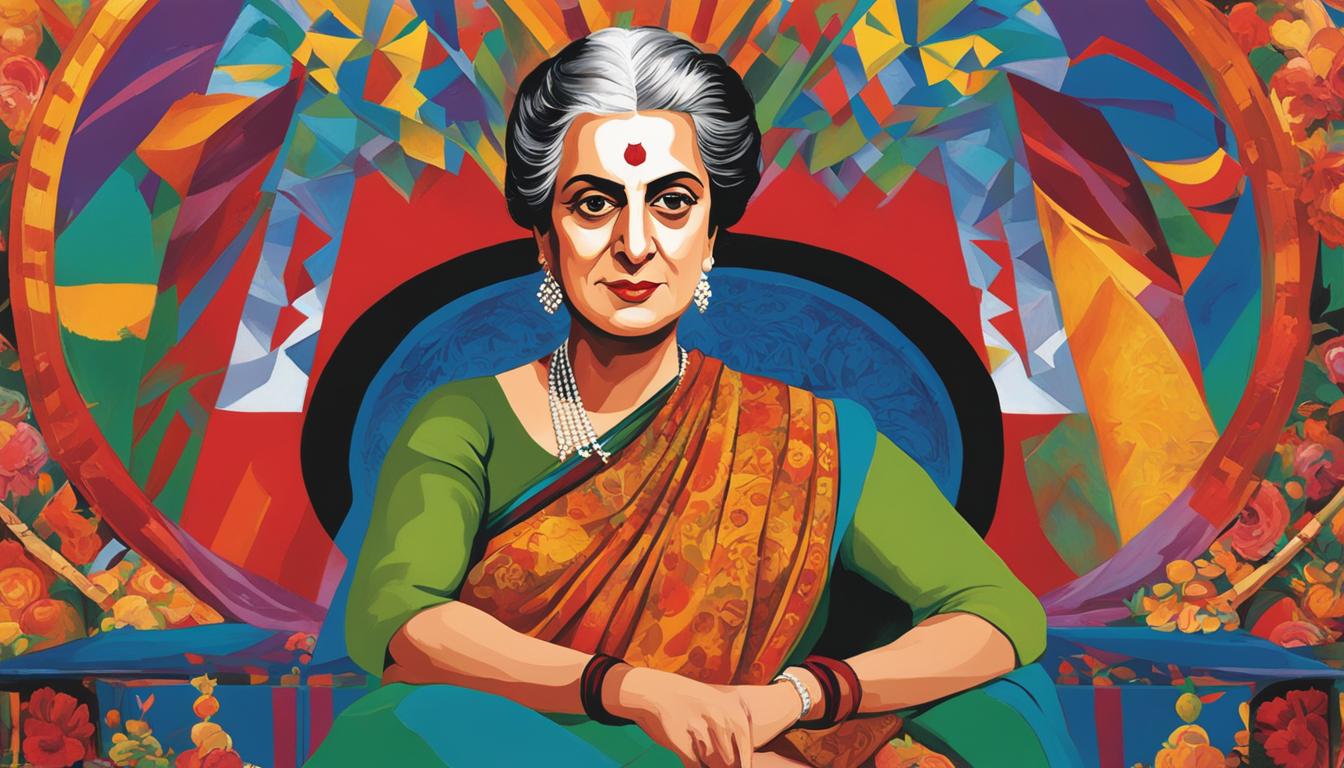This article provides a book summary of ‘Indira: The Life of Indira Nehru Gandhi’ by Katherine Frank. The book explores the life and achievements of Indira Nehru Gandhi, a prominent political figure in India. Indira Nehru Gandhi was the first and, so far, the only female Prime Minister of India, serving for three consecutive terms from 1966 to 1977, and a fourth term from 1980 until her assassination in 1984.
The book offers valuable insights into her personal and political life, starting from her early days, her rise to power, political career, controversies and challenges, personal life, and international influence. The author delves into Indira Nehru Gandhi’s leadership style, analyzing her reputation as an authoritarian and decisive leader. The book also examines her contributions to Indian politics and her influence on women entering the political arena.
Throughout the articles, we’ll discuss key themes explored in the book, offer an analysis and critique of the storytelling techniques and historical accuracy employed by the author, and provide a comprehensive understanding of the legacy and impact of this political icon.
Background of Indira Nehru Gandhi
Indira Nehru Gandhi was born on November 19, 1917, in Allahabad, India. She was the only child of Jawaharlal Nehru, India’s first prime minister, and Kamala Nehru. Growing up, Indira was exposed to Indian politics, both through her father’s career and her association with the influential Nehru-Gandhi family. Her grandfather, Motilal Nehru, was a prominent figure in the Indian independence movement, and her father played a critical role in shaping the country’s political landscape.
The Nehru-Gandhi family is often referred to as the ‘first family of Indian politics’ and has been a dominant force in Indian politics since independence. Indira Nehru Gandhi’s marriage to Feroze Gandhi, a journalist and political activist, further cemented her ties to the political world. Feroze Gandhi was not related to Mahatma Gandhi but was a vocal critic of the Indian National Congress (INC), the political party led by Indira’s father.
Rise to Power
Indira Nehru Gandhi’s political career began when she was appointed as the President of the Indian National Congress in 1959. She quickly rose through the ranks and was elected as the Prime Minister of India in 1966, becoming the first woman to hold this position in the country.
As Prime Minister, Indira Nehru Gandhi implemented various policies that aimed to improve the country’s economic and social conditions. Her leadership during the Indo-Pakistani War of 1971 and her decisive maneuvering during the Bangladesh Liberation War cemented her position as a prominent leader in India’s political landscape.
Indira Nehru Gandhi’s political career was not without controversy, however. The imposition of emergency rule in 1975 and the subsequent suspension of civil liberties drew criticism from many quarters. Despite this, she remained a popular leader and was re-elected as Prime Minister in 1980.
“My grandfather once told me that there are two kinds of people: those who do the work and those who take the credit. He told me to try to be in the first group; there was much less competition.” – Indira Nehru Gandhi
Political Achievements
Indira Nehru Gandhi’s tenure as Prime Minister of India was marked by significant political achievements that left a lasting impact on the country. One of her most notable achievements was her leadership during the emergency period, a 21-month period from 1975-1977 where civil liberties were suspended, and political opposition was suppressed. Gandhi’s decisive action during this time helped to stabilize the country, but it also drew criticism from opponents who accused her of authoritarianism.
Another significant achievement of Gandhi’s was her contribution to the Green Revolution in India. This agricultural initiative aimed to increase food production through the use of new technology, such as high-yielding crop varieties, fertilizers, and irrigation systems. Gandhi’s government helped to introduce and promote this initiative, resulting in increased food production, improved rural livelihoods, and a decline in food shortages.

Controversies and Challenges
Despite her many accomplishments, Indira Nehru Gandhi’s political career was not without controversy and challenges. One of the most contentious events during her tenure as Prime Minister was the military operation known as Operation Blue Star, which was designed to flush out Sikh militants from the Golden Temple in Amritsar. The operation resulted in significant loss of life and damage to the temple, and it was widely criticized by some militant groups and political opponents.
Another significant challenge during Indira Nehru Gandhi’s time in office was an assassination attempt in 1984 by her own bodyguards, who were Sikh extremists angry about the government’s handling of the Sikh separatist movement. Tragically, she was later assassinated in October of the same year by two of her own bodyguards.
The events surrounding Indira Nehru Gandhi’s assassination were a significant moment in Indian history, setting off a wave of violence and political turmoil that would have repercussions for years to come.
Personal Life and Relationships
Indira Nehru Gandhi was not only a powerful political figure, but also a wife, mother, and daughter. Her personal life was fraught with challenges and controversies, including her marriage to Feroze Gandhi, which was met with opposition from her family due to their differing religious backgrounds. Despite this, the two were devoted to each other, and their marriage lasted until Feroze’s untimely death.
Indira was a mother of two sons, Rajiv and Sanjay, and was known to be a caring and loving parent. However, her relationship with her older son, Rajiv, was strained due to her political obligations.
“The legacy of Indira Gandhi is one of an incredibly strong and decisive woman who was at the same time greatly devoted to her family and her children.”
During her reign as Prime Minister, Indira also had a complex relationship with her father, Jawaharlal Nehru, who had served as India’s first Prime Minister. Their relationship was strained at times due to political differences and clashes of opinion. However, Jawaharlal’s influence on Indira cannot be denied, and he played a significant role in shaping her political choices and ideology.
Leadership Style
Indira Nehru Gandhi is widely known for her authoritarian and decisive leadership style. Her reputation as a strong leader was built on her ability to make tough decisions and take quick action, even if it meant going against popular opinion.
One example of her authoritarian approach was during the emergency period from 1975 to 1977 when she suspended civil liberties and arrested thousands of political opponents. This action, while controversial, demonstrated her willingness to take bold steps to maintain political power.
Her decisive style was also evident in her environmental policies, particularly in her support of the Green Revolution, which transformed farming practices in India and helped to alleviate food shortages.

Some critics have argued that her leadership style was detrimental to democracy, and that her authoritarian tendencies undermined the principles of transparency and accountability. However, others have praised her for her strong leadership in times of crisis, and for her ability to balance the needs of the country with her own political interests.
“To be a successful leader, you have to have the strength of character to make tough decisions and stand by them.”
Overall, Indira Nehru Gandhi’s leadership style was characterized by her strong will, determination, and the ability to act decisively in the face of opposition. While her methods may have been controversial, there is no denying the significant impact she had on Indian politics and society.
International Influence
Indira Nehru Gandhi’s leadership was not limited to India’s domestic policies; she also played a pivotal role in shaping India’s foreign policy.
One of her notable achievements was her establishment of strong global partnerships, which helped to strengthen India’s standing in the international community. She promoted close ties with countries such as the United States, the Soviet Union, and China, which helped to enhance India’s trade and security.
Additionally, Indira Nehru Gandhi played a crucial role in the Non-Aligned Movement, a grouping of nations that sought to remain neutral during the Cold War. As one of the leaders of the movement, she worked to promote cooperation among its members and to advance their common interests on the world stage.
Indira Nehru Gandhi’s impact on India’s foreign policy remains evident to this day, as her legacy continues to shape the country’s relationships with other nations.
Legacy and Impact
Indira Nehru Gandhi’s political legacy is significant in shaping India’s socio-political landscape. As the first woman Prime Minister of India, she played a pivotal role in breaking gender stereotypes and paving the way for more women to enter politics. Her leadership style, both admired and criticized, left a lasting impact on the country.
Under her leadership, India made significant strides in agricultural and industrial development, earning her the moniker ‘Mother of Indian Green Revolution’. Her contribution to the Non-Aligned Movement also cemented India’s position as a prominent player in global politics.
However, Indira Nehru Gandhi’s legacy is not without controversy. Her authoritarian leadership style during the Emergency period faced harsh criticism, and her involvement in Operation Blue Star resulted in tragic consequences. Her assassination in 1984 was a defining moment in Indian history, leading to a wave of riots and protests.
Despite the controversies and challenges she faced, Indira Nehru Gandhi’s impact on Indian politics is undeniable. Her contributions to promoting gender equality and championing the cause of women in politics inspired a generation of women to enter the political arena and made India a more inclusive democracy.
Key Themes in the Book
Katherine Frank’s book on Indira Nehru Gandhi touches upon several crucial themes, including an analysis of the dynamics of political power and the intersection of gender and politics. The book delves into how Indira Nehru Gandhi utilized her political power both in India and on the international stage, showcasing her reputation as an authoritative and decisive leader.
The book also explores the complexities of gender and politics and how Indira Nehru Gandhi navigated these intricacies throughout her political career. It highlights how being a woman in politics can be both an advantage and a disadvantage, ultimately shaping her leadership style and decision-making process.
Additionally, the book sheds light on the challenges faced by women in positions of power. It provides a valuable insight into the struggles and sacrifices made by Indira Nehru Gandhi as a trailblazer for women in politics.
Analysis and Critique
While Katherine Frank’s book offers a fascinating account of the life of Indira Nehru Gandhi, there are questions surrounding its historical accuracy. Several experts have criticized the book for its reliance on unverified claims and its tendency to present speculation as fact. While Frank’s use of anecdotes and personal interviews adds depth to the storytelling, it raises concerns about the reliability of the information contained within.
The storytelling itself, however, is well-crafted and engaging, drawing readers into the complex world of Indian politics and the life of one of its most prominent figures. Frank employs a narrative style that weaves together personal details with political events, providing readers with a vivid and multifaceted portrait of Indira Nehru Gandhi.
“Frank’s ability to humanize a political figure and bring her to life on the page is truly remarkable.”
Overall, while there are valid concerns about the historical accuracy of the book, Katherine Frank’s storytelling skills cannot be denied. The book provides a compelling and intimate portrayal of Indira Nehru Gandhi, bringing readers into the heart of her life and times.
Conclusion
Indira: The Life of Indira Nehru Gandhi by Katherine Frank is a fascinating book that provides invaluable insights into the life and achievements of one of India’s most prominent political figures. The book summary offers a comprehensive overview of Indira Nehru Gandhi’s background, rise to power, political achievements, controversies, personal life, leadership style, international influence, legacy, and impact.
This book is essential reading for anyone interested in Indian politics or the dynamics of political power. It highlights the challenges faced by women in politics and the intersection of gender and politics. The insights offered by the book are relevant not only to India but also to the wider global political landscape.
While the book offers a compelling narrative and is well-researched, it is not without its flaws. There are some critiques regarding its historical accuracy and storytelling techniques. However, this does not detract from the overall value of the book.
Overall, Indira: The Life of Indira Nehru Gandhi by Katherine Frank is a thought-provoking and informative read that offers valuable insights into the life of a truly remarkable political icon.



